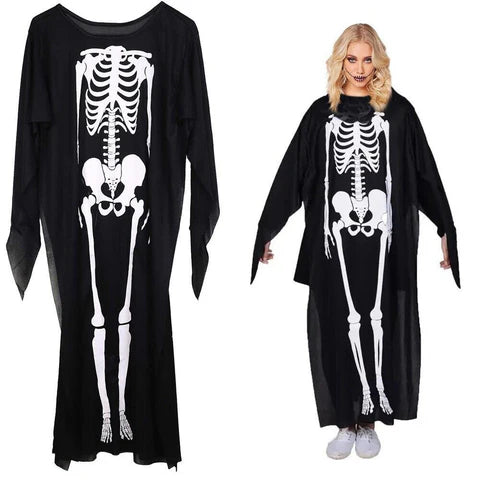Halloween is no longer a purely American celebration – the spooky holiday is also enjoying increasing popularity in Germany. But how is Halloween actually celebrated in Germany , and which customs have become established here? In this article, we take a closer look at the origins, traditions, and peculiarities of Halloween in Germany.

Origins of Halloween
Halloween originated in Celtic culture and was celebrated primarily in Ireland. The festival has its roots in the Samhain tradition, where it was believed that the spirits of the dead returned to earth on this day. With Irish immigrants, Halloween eventually reached the United States, where it became one of the most popular festivals of the year.
How did Halloween become popular in Germany?
In Germany, Halloween only really began to gain popularity in the 1990s. Increasing globalization and the influence of American culture through films, TV series, and the internet played a decisive role. Younger generations in particular took a liking to the holiday and contributed to its increasing popularity.
Advertising and retail also boosted its popularity. Supermarkets and department stores began offering costumes, candy, and decorations, making Halloween commercially attractive.

Traditional Halloween activities in Germany
On Halloween, there are a variety of activities in Germany that are based on American traditions but also contain their own elements.
Trick-or-Treat
One of the most well-known traditions is "trick-or-treating," in which children go from house to house collecting candy. Children in costumes ring neighbors' doorbells and shout, "Trick or treat!" This tradition has become particularly established in larger cities.
Halloween parties and costumes
In addition to trick-or-treating, Halloween parties are very popular in Germany. Adults and young people dress up in scary or creative costumes and party into the night. Special Halloween events are organized, especially in clubs and bars, and attract large crowds every year.

Disguises and costumes
Halloween costumes in Germany range from classic horror characters like vampires, witches, and zombies to creative and unusual costumes. Movie and TV characters are also very popular. Many people take a lot of time to plan and design their costumes.
Decorations and Halloween atmosphere
In addition to costumes, decorations also play a major role in Halloween. Typical decorations such as pumpkins, skeletons, and cobwebs adorn many homes and apartments. In recent years, the trend of decorating one's home with a spooky theme has become established to create the perfect Halloween atmosphere.
Different regional customs in Germany
Interestingly, Halloween isn't celebrated the same way across Germany. In rural areas, the customs are often less widespread, while in larger cities, Halloween parties and trick-or-treating are common.

Halloween and the influence of German culture
In Germany, there are several traditions that combine well with Halloween. For example, St. Martin's Day, which also features children's parades, or the autumn festivals that take place in many regions. In recent years, Halloween has often been combined with these traditions, creating a unique combination of old and new customs.
Halloween for children and families in Germany
For families and children, Halloween is a special highlight of the year. In addition to trick-or-treating, many places host special children's parties where little ones can play in costume, do crafts, and listen to scary stories.
Safety tips for Halloween
To ensure Halloween is safe for children, parents should keep a few things in mind. Luminous or reflective clothing helps them be more visible in the dark. Children should also only go out in groups and make sure they only ring familiar doorbells.

Commercialization of Halloween
The increasing commercialization of Halloween is also evident in Germany. Sales of costumes, candy, and decorations increase every year, and retailers are increasingly using Halloween as a way to generate revenue. However, many critics see this as problematic, as the original spirit of the holiday is being lost.
Criticism of Halloween in Germany
Despite the growing popularity of Halloween, there are also some critical voices in Germany. Many see the holiday as an American import that doesn't fit with German traditions. Religious groups also repeatedly express concerns, pointing out that October 31 is also Reformation Day in Germany.
Halloween compared to other German festivals
A frequently drawn comparison is that between Halloween and Carnival. Both festivals are characterized by costumes and celebrations, but while Halloween has a spooky touch, Carnival is more about humor and fun. The meaning of the two festivals also differs, as Halloween originally has religious roots, while Carnival is a secular celebration.
Future Halloween trends in Germany
It's exciting to see how Halloween is evolving in Germany. It's likely that the festival will continue to grow in popularity in the coming years. Especially in the area of decorations and costumes, there could be new trends that make the festival even more diverse.
Conclusion
Halloween has become an integral part of the German calendar and offers plenty of fun and spooky entertainment for both children and adults. Although it originated in a completely different culture, Halloween has become well established here and continues to grow from year to year.
FAQs
1. When is Halloween celebrated in Germany?
Halloween is celebrated every year on October 31st.
2. Which costumes are the most popular?
The most popular costumes include classic horror characters such as vampires, zombies and witches, but also movie characters and creative disguises.
3. Where does the custom of “trick or treat” come from?
The custom originates from the USA, where children go from house to house on Halloween evening and collect sweets.
4. Is Halloween an official holiday in Germany?
No, Halloween is not an official holiday in Germany. However, Reformation Day is celebrated on October 31st in some German states.
5. Are there differences between Halloween and Carnival?
Yes, Halloween is more scary and comes from a religious tradition, while Carnival is a humorous and secular celebration.

